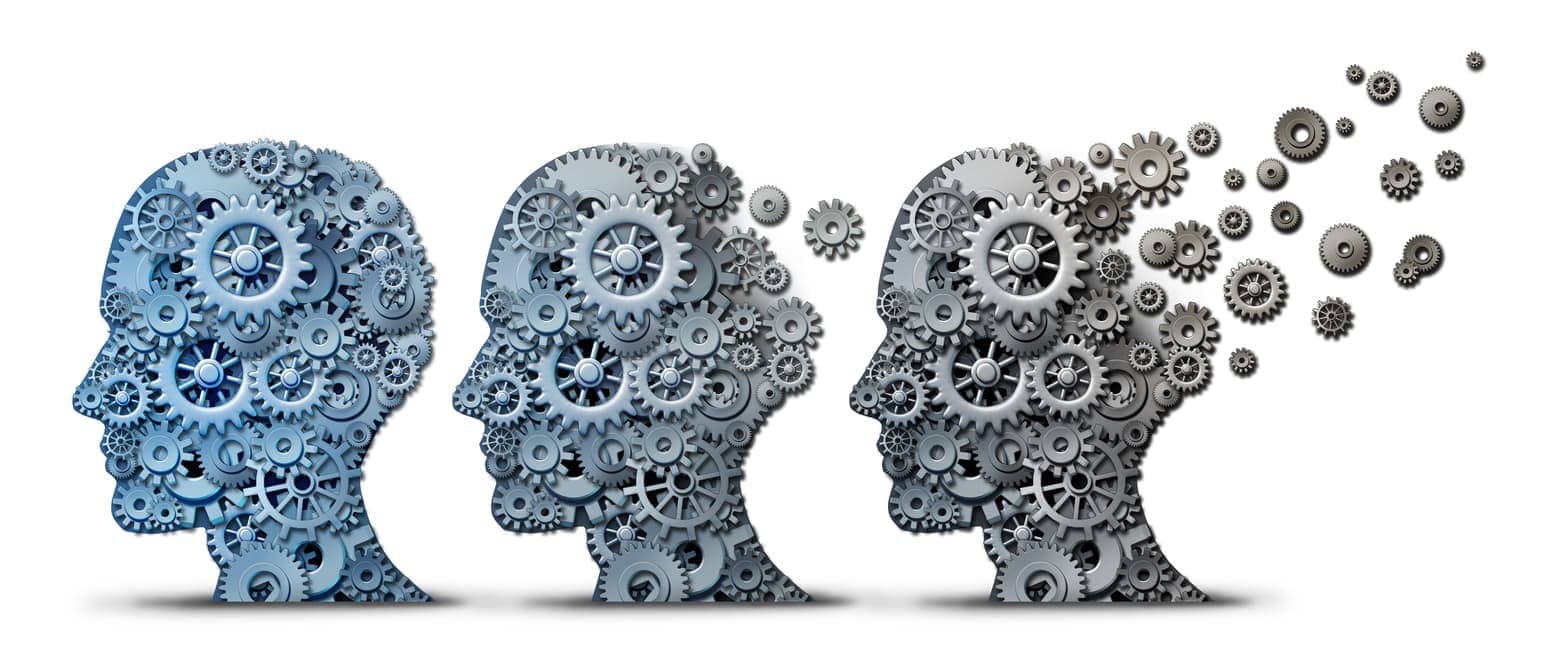
Understanding the Progression of Dementia
The 7 Stages of Dementia
As you and your loved ones process a new reality after a dementia diagnosis, many questions may arise. Often families have many questions related to how quickly dementia progresses. Dementia progression varies significantly from person to person and can range from a few years to decades. Factors such as the type of dementia, age, and overall health all play a role in the speed of cognitive decline.
While timing is difficult to predict, understanding the stages of dementia can provide a clearer picture of what to expect.
The Stages of Dementia
The scale below categorizes the progression of dementia into seven distinct stages.
- Stage 1: No Cognitive Decline
Dementia starts to affect your brain structure at this stage, but there are no signs of cognitive decline and individuals are fully functional.
- Stage 2: Very Mild Cognitive Decline
This stage involves slight complaints of memory loss, such as misplacing objects or forgetting names. Individuals can still handle their typical lifestyle including chores, work, and social life.
- Stage 3: Mild Cognitive Dementia
Cognitive decline becomes more apparent to family and friends. Individuals may have difficulty with complex tasks, such as managing finances or planning social events. Creating a proactive care plan at this stage can help slow the progression of dementia.
- Stage 4: Moderate Cognitive Dementia
Individuals experience more symptoms and require assistance with some daily activities at this stage. Symptoms can include difficulty with language, changes to sleep habits, or withdrawal during social events. This stage is a good time to consider if a memory care community to ensure safety and wellness.
- Stage 5: Moderately Severe Cognitive Decline
Individuals in this stage need help with many daily activities, such as dressing and hygiene. Other symptoms that may start include increased confusion, paranoia, or false memories. Having a trained team of caregivers specializing in memory care can support wellness for the individual and their family.
- Stage 6: Severe Cognitive Decline
In this stage, individuals need significant assistance. They may experience difficulty communicating, eating, and recognizing people. Professional full-time care can ease some of the challenges
- Stage 7: Very Severe Cognitive Dementia
This is the final stage of dementia, where individuals may lose the ability to speak, walk, or swallow. This stage requires around-the-clock care for all needs.
These stages are a general guide and not everyone will experience dementia in the same way. At Avalon Memory Care, we recognize the uniqueness of each resident and tailor our care to their specific needs, ensuring they feel secure, comfortable, and part of a family environment. Our staff is trained to provide individualized and flexible care that supports self-esteem and quality of life.
Understanding Your Loved One’s Journey
If you are noticing signs of cognitive decline in a loved one, you may be unsure of what to do next or when it’s time to seek professional support. To help you gain a clearer understanding of your loved one’s condition, we offer the FAST Scale Survey, a free, quick tool for measuring the progression of Alzheimer’s disease.
The FAST scale can help identify your loved one’s stage in the progression of dementia, providing valuable information to guide your care decisions. This 5-minute assessment can eliminate some of the guesswork and empower you to make informed choices for your loved one’s care.Better understand your loved one’s journey by accessing our free FAST Scale assessment. Take the Fast Scale Survey.
See More Articles
-
Visiting Your Aging Parent With Memory Loss at Avalon Memory Care
As a loving son or daughter, you naturally want the best of care for your senior parent. The compassionate assisted living caregivers at Avalon Memory Care want you to know that while your parent is living with us, he or she will receive nothing less than respectful, loving care within our comfortable, safe, and fully-staffed
-
Celebrating New Year’s Day in Memory Care
Families often find that celebrations with their loved ones in memory care are easier when they embrace new traditions. For instance, it may not be practical to expect your loved one to stay up until midnight on New Year’s Eve. Instead, consider throwing a New Year’s Day celebration, complete with a countdown to the first
-
Hope For the Future: Emerging Alzheimer’s Research
According to the latest statistics, as many as 5.5 million Americans are living with Alzheimer’s disease, and its prevalence is only expected to rise in the next few decades. At the same time, however, research into treatments for the condition is accelerating. With every passing year, we move a little further down the road toward
Testimonials
Downloadable Resources
We Are Avalon
Discover the heart of our community; download ‘We Are Avalon’ to get to know our dedicated team and our commitment to providing a warm, family-like environment.
Transitional Care Guide
If you’re considering a transition, we’re here to help; download our Transitional Care Guide for compassionate guidance through each step of the process.
Schedule a Tour
Visit one of our 30+ campuses and experience our unique approach to memory care.












